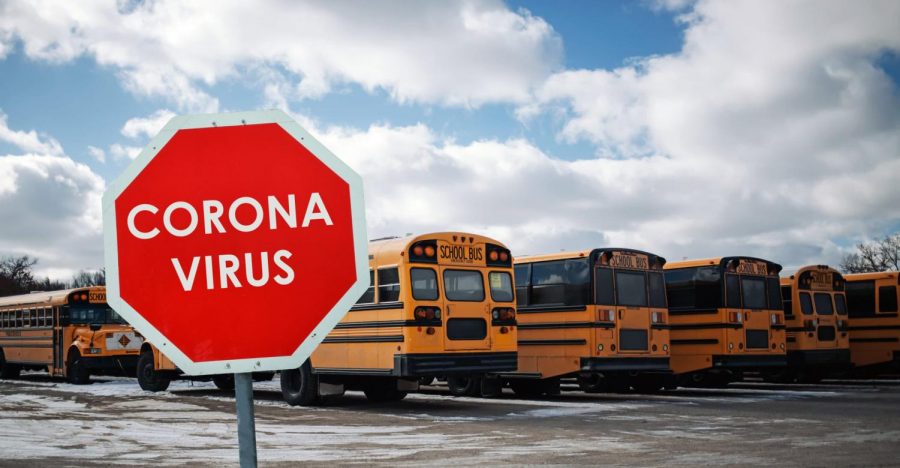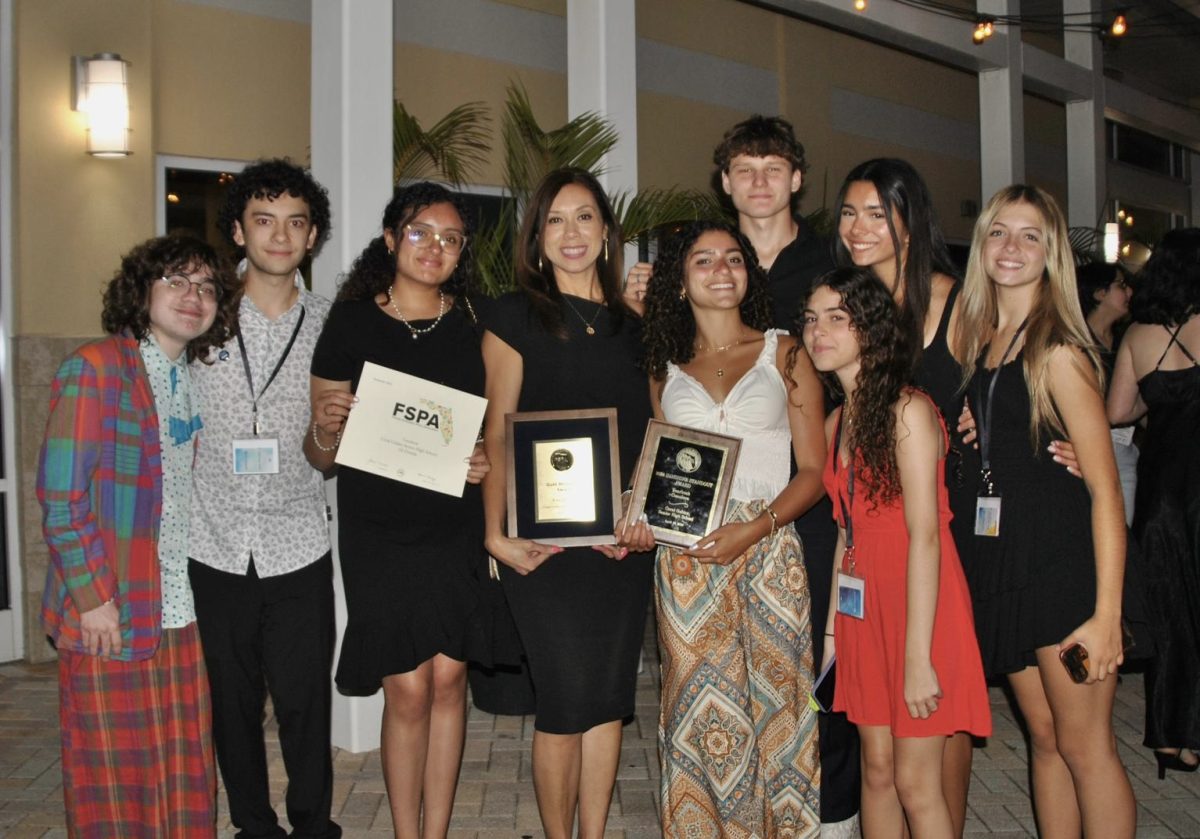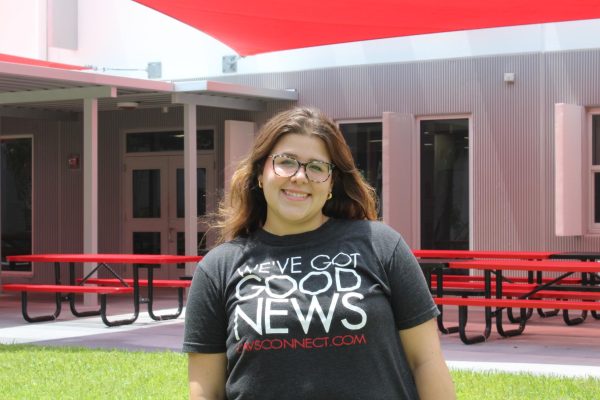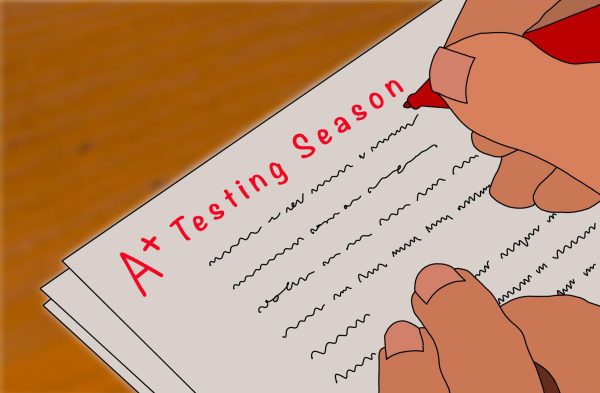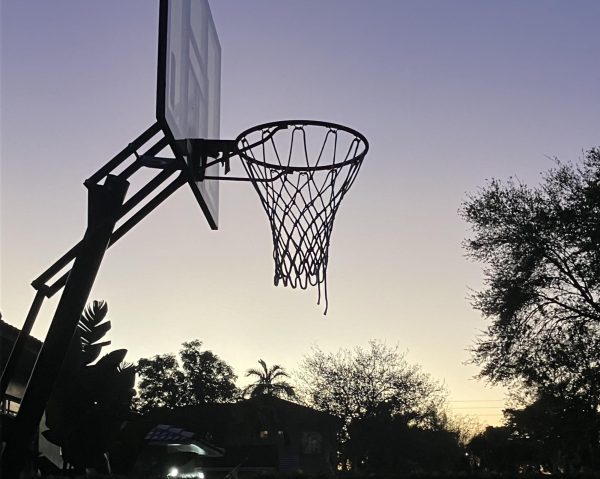Would Reopening Schools in the Fall be a Wise Choice?
The White House blocked the Centers for Disease Control and Prevention from testifying on reopening schools in front of Capitol Hill lawmakers.
Jul 22, 2020
As of July 2020, the state of Florida has surpassed 300,000 COVID-19 cases, quickly becoming the United States’ epicenter of the virus. The surge of cases is due to many citizens refusing to wear masks with many also ignoring social distancing rules. The growing amount of individuals who do not believe in the science behind the virus are to be blamed for the number of tests returning positive. Though it is of popular belief that COVID-19 seems to only be an imminent threat towards elders, it is incorrect. People of any age are vulnerable to the virus and can easily contract it if preventive measures are not taken. As seen around the world, this virus can sometimes be deadly for younger people. That being said, it would be unwise to open up schools this 2020-2021 school year due to the fact that it is virtually impossible to social distance in a school with thousands of kids and many adults, also considering that the exposure to cleaning products for hours at a time can be dangerous and keeping up with hygiene is a difficult task for some.
Governors all over the country are planning to reopen schools this upcoming year, and though that might not be such a horrible idea for states like Montana or Wyoming which are not epicenters of this virus, it would be irresponsible for the majority of states to welcome thousands of people on to one campus. The number of students per classroom averages out to around 23, thus with the number of desks needed it is simply impossible to maintain the six feet apart rule. Some argue that the solution would be to separate students into different classrooms, but fail to realize that most schools are underemployed and sometimes only have one teacher per subject. Even if students are separated in the classroom, small contained spaces such as hallways or bathrooms would lead to clustering and contamination.
“Gables is a large school, I do not think any classroom will be able to hold all of its students while still maintaining social distancing protocols,” senior Isabelle Barbery said.
One key component to prevent contamination is to continuously clean the surfaces around you. Heavy-duty cleaners, such as bleach, and weaker disinfectants, such as hand sanitizer, both guarantee to wipe away any germs left on surfaces and hands while forming a sense of protection among users. Though these options are helpful, inhaling these chemical-filled products for a long period of time could lead to harmful effects. Since the spread of COVID-19 emerged in the U.S around February, the CDC noticed an increase in the daily number of calls to poison control centers for exposures to cleaning products. Many people are sensitive to these powerful smells and being forced to sit in classes with these chemicals is bound to have some negative consequences such as headaches, nausea and dizziness. Teachers, especially, are prone to these effects since they would be responsible for keeping their classrooms clean and have to remain inside the same room before and after school hours.
“My mom has worked with cleaning products for most of her life and has since developed a sensitivity to any strong scents,” junior MarianPaola Chacon said.
In a perfect classroom, a teacher would be able to ensure students avoid contact at all times, but not much can be prevented outside of supervision. It is not reasonable to think that thousands of kids will follow directions and maintain social distancing. An important issue also seems to be hygiene, as public schools are notorious for not keeping up with toilet paper and soap in the bathrooms. Sure they will make it a priority at first, but this will only last a few months resulting with bathrooms going back to no available soap. There is also no way to guarantee students will always wash their hands, even if it is strongly enforced. All it takes is one student to infect hundreds. To make things even more difficult, janitorial services are heavily understaffed and underpaid for what is being asked for them to do.
Schools in states with high amounts of COVID-19 cases should not be allowed to reopen and follow in the steps of countries that properly handled the virus’ spread. It is ironic to see the high officials that are making life-changing decisions for students and teachers having meetings online because they are concerned for their own safety but not anyone else’s. Rather than formulating a national plan to advocate for distanced learning, many government officials are willing to jeopardize the livelihood of many to help prove that the spread of this virus is being handled across the country. Instead, classes should be conducted online until the spread of the virus has diminished. Although online schooling can be difficult, it is necessary to keep the lives of students as the first priority during this crisis.
[powr-twitter-feed id=391cb2bc_1595200391162]


